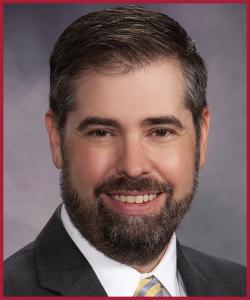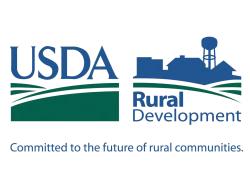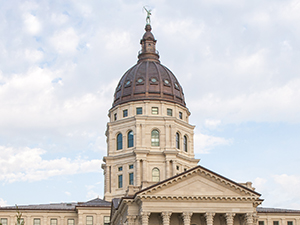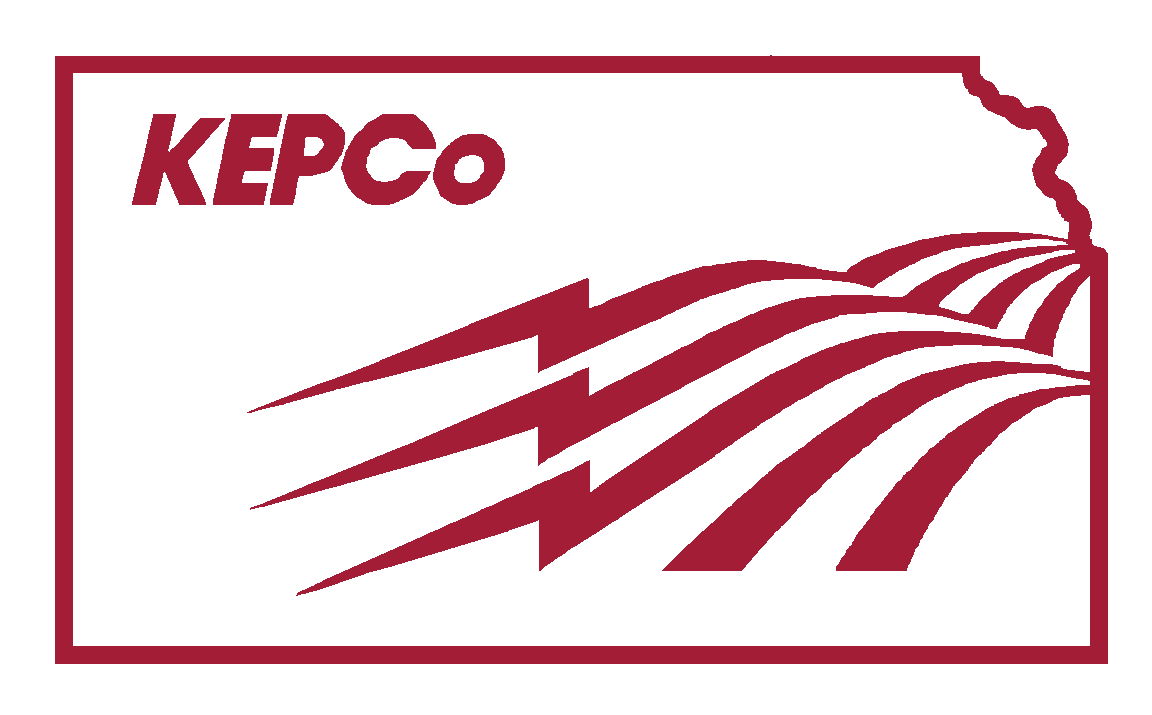A Moment with the CEO
BY SUZANNE LANE

As yet another Kansas winter season concludes and we start to see the budding evidence of glorious spring, it’s a perfect time to think about the next season for KEPCo—and the “spring growth” opportunity that our recently-approved strategic plan represents. Setting goals and creating a blueprint for the future is the very definition of strategic planning for an organization. Much like the weather conditions in spring create the blueprint for the trees, grass, flowers, and crops in Kansas, the 2023-2027 strategic plan for KEPCo provides our blueprint for future growth as well.

Then, at our January 2023 board of trustees meeting, the details, action items, and timelines related to each of these strategic goals were finalized and approved by the board. While many of the initiatives outlined in the strategic plan will be on-going, key near-term actions include performing a cost of service study, creating a new Power Supply Committee to evaluate all aspects of KEPCo’s future power supply, updating our long-range financial forecast, and creating a cyber security handbook.
We look forward to implementing the next steps related to all action items within our strategic plan, as they all contribute to our purpose of assuring we provide our members with an affordable, reliable power supply. I am grateful for the hard work and dedication of our board and our employee team as we kick-off this next chapter of KEPCo’s history.
Generating Safety:
Spring Tips
General safety is the first thing to consider heading into spring, especially around the home. Here are some great spring safety tips to keep you and your family safe as you transition into the new season.
Indoor Safety Tips:
- Remove any old paint cans and paint thinners, in addition to old newspapers and magazines. Most communities have a place to safely dispose of hazardous materials.
- Consider your smoke alarms. Do you have enough in your residence or workplace? Change the batteries each spring to be sure you are prepared for an emergency.
- Clean the dust covers of carbon monoxide detectors.
- Review your emergency escape plan with each member of the family in the event of a fire.
- Clean or replace your furnace filter(s).
- Grease can accumulate on your stove hood. Properly cleaning the hood is one way to keep flames from spreading should a fire break out.
- Check all fire extinguisher needle indicators to be sure they are charged.
- Clean around your dryer. Pay close attention to any ducts or dampers to be sure that lint has not accumulated and blocked this space. Accumulation of lint can lead to a fire.
- Check all chords to prevent an electrical fire. Make sure they are not frayed and that wires are not visible.
Outdoor Safety Tips:
- Practice ladder safety. Make sure your ladders are in safe working condition. If you plan to climb a ladder, you should do so accompanied by someone who can help in the event of an emergency. Be sure ladders are placed on level surfaces.
- Check outdoor cords for frays and damage.
- Check any gas-operated equipment to be sure the fuel lines are not leaking.
- Do not store gasoline in a container not intended for such use. Be sure all equipment used for lawn and outdoor purposes is fueled outdoors to eliminate the risk of fume inhalation.
- Keep all dangerous liquids or chemicals out of the reach of children, especially those that can become flammable.
Geil Graduates from the Management Internship Program

Shawn Geil, KEPCo Executive Director, Technical & Energy Services, has completed an intensive program in electric utility management with the University of Wisconsin – Madison.
The Robert I. Kabat Management Internship Program (MIP) is a series of workshops offered by the National Rural Electric Cooperative Association in conjunction with the University of Wisconsin. The program guides participants through all facets of the electric utility industry, including the many changes occurring around the nation.
By also covering the unique principles that govern the operations of electric cooperatives, the program helps the co-op analyze other business ventures it may want to enter as well as enhancing the core organization.
Only rural electric cooperative CEOs and top-level management participate in the program. This allows greater emphasis of study on management and leadership challenges and the aspects of consumer-ownership that cooperatives enjoy.
Participants focus on member value as part of day-to-day decision making and KEPCo is proud to announce that Shawn has completed one of the most exclusive management development programs in the nation for electric cooperatives.
Congratulations, Shawn!
REDLG Project Selected

“KEPCo and its member cooperatives have a long and successful relationship with the USDA and the REDLG program. Rural electric cooperatives are committed to the communities they serve, and each REDLG project adds to the economic vitality of rural Kansas. KEPCo is proud to assist our member cooperatives and to be involved in this economic development program,” said Susan Cunningham, KEPCo SVP & General Counsel.
KEPCo Supports Local Charities

Over the course of 2022, through KEPCo’s Charitable Giving Program, KEPCo and KEPCo staff, along with a CoBank matching contribution, donated over $31,000 to local and regional charities. The charities chosen by KEPCo staff were the Topeka Rescue Mission, Court Appointed Special Advocates, Harvesters, Ronald McDonald House, Salvation Army, Osage County Help House, Project 2 Restore, and TARC..
2023 Legislative Update

The 2023 legislative session has been busy this session, packed with numerous bills affecting electric cooperatives and investor-owned utilities alike. KEPCo has worked collaboratively and cooperatively with KEC, Midwest Energy, and Sunflower by examining and analyzing bills, preparing and presenting testimony, and lobbying on bills of interest. “This session has been one of the busiest in recent memory. Through the due diligence efforts of the electric cooperative lobbyist team, we were aware of a number of the bills prior to the session and discussions were held in advance in order to be prepared as the session quickly unfolded. I greatly appreciate the efforts of all involved in this session, and the final outcome of the bills of interest will reflect those efforts,” said Susan Cunningham, SVP & General Counsel.
HB2227 – Authorizing certain power purchase agreements with renewable energy suppliers, exempting the sales of electricity pursuant to power purchase agreements from public utility regulation, and requiring electric public utilities to enter into parallel generation contracts with certain customers of the utility. The bill was heard but not worked.
HB2228 – Increasing the capacity limitation of the total amount of net-metered generation systems that may operate within the service territory of an investor-owned electric utility and removing the load-size limitations on customers’ net-metered system. The bill was heard but not worked.
HB2004 – Establishing the EV energy equity road repair tax act and providing for a road repair tax on electricity distributed from a public charging station for electric vehicles. The bill was heard but not worked.
HB2154 / SB88 – Providing for the statewide election of commissioners of the state corporation commission, establishing the utilities regulation division in the office of the attorney general, requiring such division to represent and protect the collective interests of utility customers in utility rate-related proceedings, and exempting the state corporation commission from the open meetings act. Both bills were heard and neither bill was worked.
HB2310 – Increasing the number of commissioners on the state corporation commission subject to gubernatorial appointment and senate confirmation and prohibiting the appointment and confirmation of any person who has a conflict of interest. The bill did not receive a hearing.
HB2155 / SB78 – Requiring the state corporation commission to review the regional rate competitiveness of an electric utility’s rates in electric utility rate proceedings. Neither bill received a hearing.
HB2440 / SB278 – Requiring public utilities to report certain data regarding customer assistance programs, account delinquencies, and disconnections, and requiring monthly, annual, and historical reporting of such information. Both bills were introduced in exempt committees and referred to the utility committees of both chambers. Since the bills are exempt, they could be taken up after turnaround.
HB2156 – Authorizing public utilities subject to the jurisdiction of the state corporation commission to establish rates that benefit low-income residential customers. The bill was introduced by CURB. The bill was heard but not worked.
HB2225 – Limiting cost recovery for certain electric public utilities’ transmission-related costs. The bill passed favorably out of the House Energy Committee. Subsequent to being passed, the bill was “blessed” and was sent back to the House Utilities Committee. The parties associated with the bill (Evergy, KCC, and Kansans For Lower Energy Rates) agreed to an amendment to the bill and the amendment was offered in committee and the bill was passed favorably as amended.
SB46 – Requiring existing wind energy conversion systems to install light-mitigating technology systems.
SB49 – Requiring installation of light-mitigating technology systems on new and existing wind energy conversion systems subject to certain conditions.
SB46 and SB49 – These bills were amended into one bill (SB49) and was favorably passed by the Senate Utilities Committee and the Senate as a whole. The bill will now be taken up by the House Energy Committee.
SB68 – Providing incumbent electric transmission owners a right of first refusal for the construction of certain electric transmission lines. The bill was heard over four days and was passed favorably out of the Senate Utilities Committee.
SB166 – Requiring public disclosure of an application for a transmission line siting permit under the jurisdiction of the state corporation commission. The bill passed favorably out of the House Utilities Committee.

